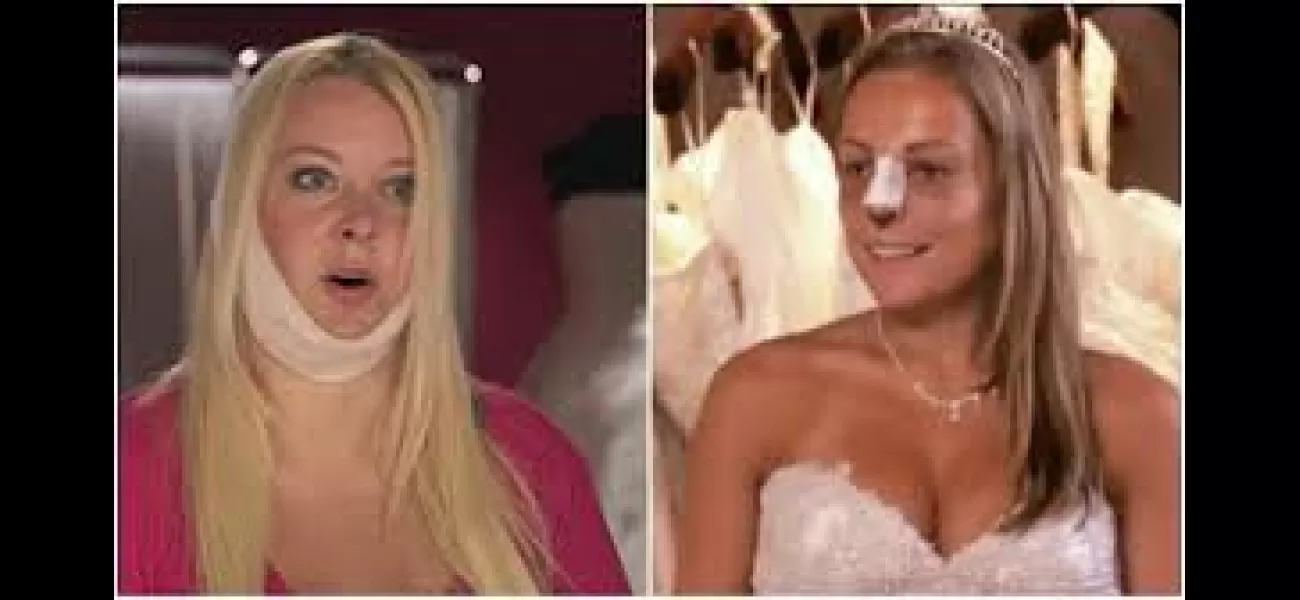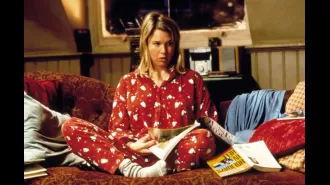A reality show from the 2000s that caused outrage among women for featuring extreme plastic surgery.
Someone thought it was a stupid idea.
June 26th 2024.

In the early 2000s, a wave of reality TV shows began to take over our screens. Some of the most popular included Big Brother, Survivor, I'm A Celebrity...Get Me Out of Here!, and American Idol. These shows have stood the test of time and continue to attract millions of viewers even after two decades. However, there were also some shows that took things too far, exploiting women's insecurities and offering supposedly life-changing makeovers. One of these shows was The Swan, which premiered in 2004 and was produced by Fox.
Hosted by Amanda Byram, The Swan followed the journeys of two self-proclaimed "ugly ducklings" over a three-month period as they underwent extreme makeovers by a team of experts including a personal trainer, therapist, dentist, and cosmetic surgeons. At the end, the women would compete in a beauty pageant and the winner would be crowned The Swan. The show ran for two seasons and was met with a lot of criticism, but it still managed to attract an average of nine million viewers during its first season. However, after less than a year on air, it was cancelled.
Now, twenty years later, some former contestants have come forward to share their experiences on the show. According to the creators, over 200,000 people applied to be on The Swan, but only sixteen were chosen to be transformed each season. The experts behind the makeovers were plastic surgeons Terry Dubrow and Randal Haworth, fitness trainer Greg Comeaux, cosmetic dentist Sherri Worth, and the show's creator Nely Galan, who also served as a life coach.
The transformation process for each contestant began with a full-body graphic shown on screen, dressed in unflattering grey underwear, as the experts commented on their bodies and suggested potential "improvements". This often included plastic surgery procedures, which were followed by grueling workouts and therapy sessions. One former contestant, Kelly Alemi, who was 28 at the time, shared how going to the gym became their full-time job during filming. Despite running seven miles and doing hundreds of sit-ups a day, she was still told she needed to lose more weight. At one point, she even demanded a scale to weigh her newly enhanced breasts, suspecting they were adding extra pounds to her frame.
For the three months they were on the show, the women were put up in apartments together and were largely cut off from their families. They were also banned from looking at themselves in mirrors to avoid spoiling the final reveal. Kelly recalls thinking that the concept of the show was ridiculous, as it seemed to promote boosting women's self-esteem before pitting them against each other in a competition. When the reveal finally happened, Kelly's reaction was not as positive as the producers wanted. She was horrified with her new appearance and even cried on cue to appease the producers.
Another contestant, Kelly Becker-Berdyck, who was 25 at the time, had always wanted rhinoplasty after being bullied as a child. However, when other procedures were suggested, such as cheek implants and an earlobe reduction, she began to question the changes and how she saw herself. Despite each woman receiving around $200,000 worth of treatments, the winner only received $50,000 in cash, a fur coat, and a scholarship to Tony Robbins Mastery University. However, the winner of the first season, Rachel Love, declined the last two prizes.
Despite the controversy surrounding the show, some former contestants have spoken about the positive impact it had on their lives. Rachel Love shared that although they were taken advantage of, there were also good things that came from the show. She believes that it doesn't negate all of the positive experiences she had. Other women contacted by the LA Times also had a mostly positive influence from the show and said they would do it again if given the chance.
However, one of the experts, Terry Dubrow, who now appears on the reality show Botched, admitted to growing disillusioned with his profession after The Swan. He realized that the show perpetuated the idea that women were not good enough as they were and he wouldn't participate in something like that again. Despite the controversy and criticism, The Swan remains a part of reality TV history, reminding us of the dangers of exploiting insecurities for entertainment.
Hosted by Amanda Byram, The Swan followed the journeys of two self-proclaimed "ugly ducklings" over a three-month period as they underwent extreme makeovers by a team of experts including a personal trainer, therapist, dentist, and cosmetic surgeons. At the end, the women would compete in a beauty pageant and the winner would be crowned The Swan. The show ran for two seasons and was met with a lot of criticism, but it still managed to attract an average of nine million viewers during its first season. However, after less than a year on air, it was cancelled.
Now, twenty years later, some former contestants have come forward to share their experiences on the show. According to the creators, over 200,000 people applied to be on The Swan, but only sixteen were chosen to be transformed each season. The experts behind the makeovers were plastic surgeons Terry Dubrow and Randal Haworth, fitness trainer Greg Comeaux, cosmetic dentist Sherri Worth, and the show's creator Nely Galan, who also served as a life coach.
The transformation process for each contestant began with a full-body graphic shown on screen, dressed in unflattering grey underwear, as the experts commented on their bodies and suggested potential "improvements". This often included plastic surgery procedures, which were followed by grueling workouts and therapy sessions. One former contestant, Kelly Alemi, who was 28 at the time, shared how going to the gym became their full-time job during filming. Despite running seven miles and doing hundreds of sit-ups a day, she was still told she needed to lose more weight. At one point, she even demanded a scale to weigh her newly enhanced breasts, suspecting they were adding extra pounds to her frame.
For the three months they were on the show, the women were put up in apartments together and were largely cut off from their families. They were also banned from looking at themselves in mirrors to avoid spoiling the final reveal. Kelly recalls thinking that the concept of the show was ridiculous, as it seemed to promote boosting women's self-esteem before pitting them against each other in a competition. When the reveal finally happened, Kelly's reaction was not as positive as the producers wanted. She was horrified with her new appearance and even cried on cue to appease the producers.
Another contestant, Kelly Becker-Berdyck, who was 25 at the time, had always wanted rhinoplasty after being bullied as a child. However, when other procedures were suggested, such as cheek implants and an earlobe reduction, she began to question the changes and how she saw herself. Despite each woman receiving around $200,000 worth of treatments, the winner only received $50,000 in cash, a fur coat, and a scholarship to Tony Robbins Mastery University. However, the winner of the first season, Rachel Love, declined the last two prizes.
Despite the controversy surrounding the show, some former contestants have spoken about the positive impact it had on their lives. Rachel Love shared that although they were taken advantage of, there were also good things that came from the show. She believes that it doesn't negate all of the positive experiences she had. Other women contacted by the LA Times also had a mostly positive influence from the show and said they would do it again if given the chance.
However, one of the experts, Terry Dubrow, who now appears on the reality show Botched, admitted to growing disillusioned with his profession after The Swan. He realized that the show perpetuated the idea that women were not good enough as they were and he wouldn't participate in something like that again. Despite the controversy and criticism, The Swan remains a part of reality TV history, reminding us of the dangers of exploiting insecurities for entertainment.
[This article has been trending online recently and has been generated with AI. Your feed is customized.]
[Generative AI is experimental.]
0
0
Submit Comment





